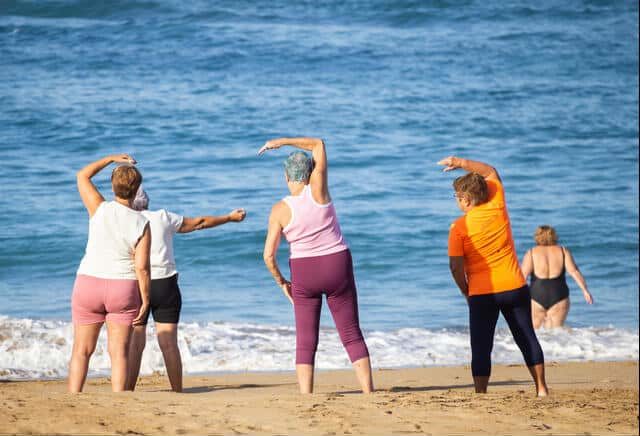- Aging continues unstoppable and is aggravated by the drop in birth rates due to covid
The aging of the population in the province of Alicante continues to increase at an alarming rate and is said to have been worsened by the record drop in birth rates caused by the coronavirus pandemic.
The latest demographic indicators released by the National Institute of Statistics (INE) show this to be the case with a notable increase in the average age and an increase in people who are within the highest age groups.
In addition, the difference between births and deaths, which grows continuously, has been accentuated by the health crisis, making a short-term change in the trend inconceivable.
In 2021, a total of 13,365 births were registered in the province, 31 more than in 2020, however, during the previous year, 2019, there had been a sharp drop due to the pandemic. The number of births last year, therefore, continued at these very low levels, and was once again highly conditioned by the health situation, but what did achieve a record was mortality, with 18,453 deaths, a number in which coronavirus played a significant part.
The result was a rate of 724.27 births per thousand deaths, the lowest figure in recent history, and in the midst of this negative balance, the population as a whole continues to grow thanks to immigration, which means that aging is increasing. The number of young people is declining, and as it does so they are becoming, proportionally, less and less of the total population.
The average age of the population is currently 44.27 years, almost five more than two decades ago.
By sex, women average 45.30 years, while with men it is 43.23. But in reality, there is an imbalance between the number of older people and the number of young people: the median age. This is 45.54 years for the population as a whole, in women it rises to 46.47 and in men it is 44.64.
Those over 65 now make up 20.65% of the province’s population. This proportion has been growing steadily since 1975, even during a time of limited rejuvenation, the boom years between 1998 and 2008. Forty years ago, this percentage was just half what it is today. However, it should also be borne in mind that in the Alicante region there is another factor that contributes to the high average age of its population , apart from aging itself: the presence of a large number of elderly residents in tourist areas such as the coast, that make these areas even older than the interior.
In this sense, we should look at the specific data of localities with more than 50,000 inhabitants. Torrevieja and Orihuela are the municipalities with the highest percentage of people over 65 years of age, 23.27 and 23.08% respectively. However, the highest rates of people over 85 years of age are found, by far, in Alcoy and Elda; these cities have, respectively, 3.47 and 3.26% of inhabitants in that older age group.
Somehow, this shows that in less touristic and more industrial areas, aging is more progressive and less concentrated in a specific age range, and also that there is less of a young population which means that the percentage of older people is higher.
The proportion of people over 80 years of age is decreasing
The update of the demographic indicators offers a rather striking fact: in the last year the proportion of people over 80 years of the total population in the province has been reduced. Specifically, according to the INE, it has gone down from 5.66 to 5.59% . It is quite plausible to think that this is due to the coronavirus, and the high mortality that it produced among older people.
If it is not the exclusive cause, at least it seems unquestionable that it has been a decisive factor. The percentage of inhabitants over 85 years of age has also decreased, from 2.80 to 2.79%.





